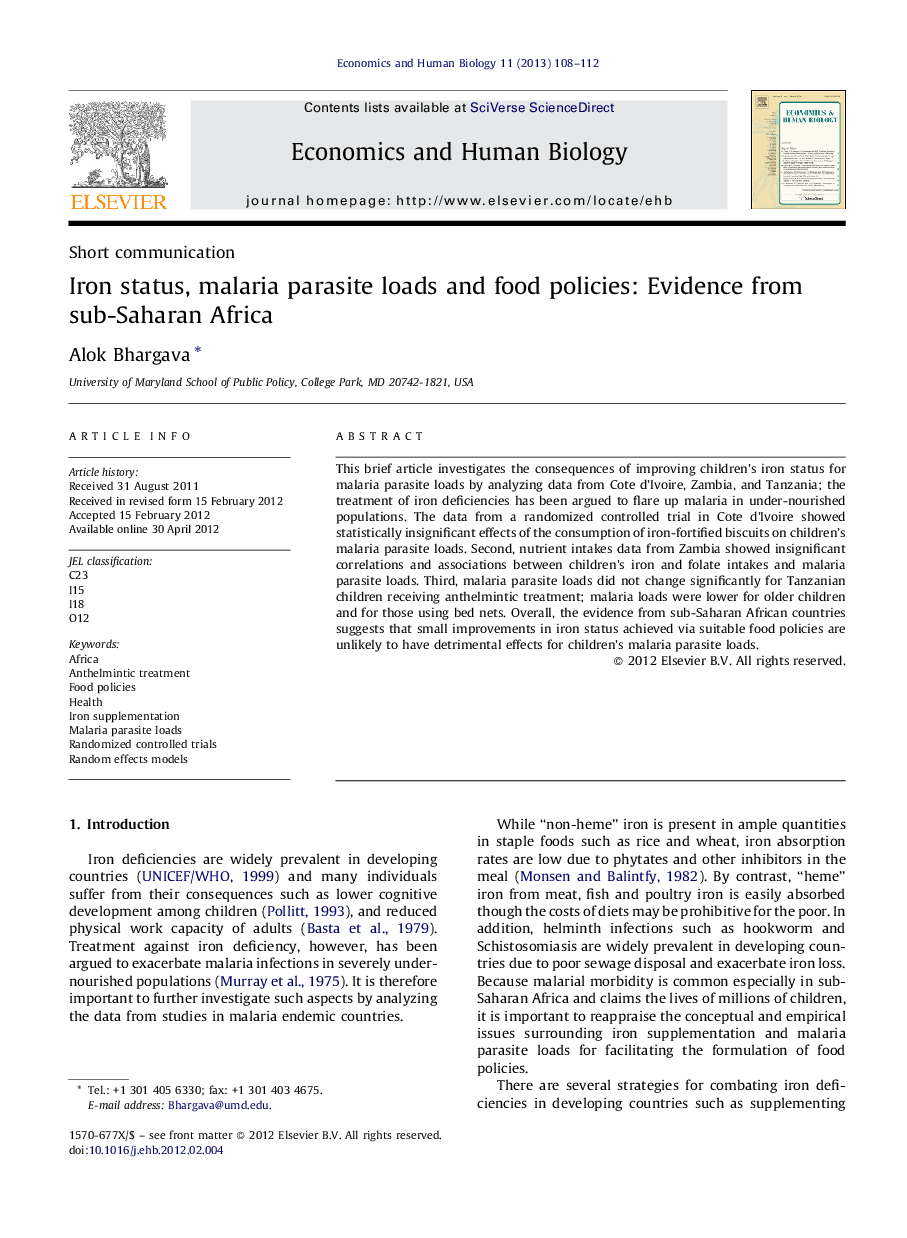| Article ID | Journal | Published Year | Pages | File Type |
|---|---|---|---|---|
| 5057088 | Economics & Human Biology | 2013 | 5 Pages |
This brief article investigates the consequences of improving children's iron status for malaria parasite loads by analyzing data from Cote d'Ivoire, Zambia, and Tanzania; the treatment of iron deficiencies has been argued to flare up malaria in under-nourished populations. The data from a randomized controlled trial in Cote d'Ivoire showed statistically insignificant effects of the consumption of iron-fortified biscuits on children's malaria parasite loads. Second, nutrient intakes data from Zambia showed insignificant correlations and associations between children's iron and folate intakes and malaria parasite loads. Third, malaria parasite loads did not change significantly for Tanzanian children receiving anthelmintic treatment; malaria loads were lower for older children and for those using bed nets. Overall, the evidence from sub-Saharan African countries suggests that small improvements in iron status achieved via suitable food policies are unlikely to have detrimental effects for children's malaria parasite loads.
⺠This article investigates the consequences of improving iron status for malaria parasite loads using data from Cote d'Ivoire, Zambia, and Tanzania. ⺠The data from a randomized controlled trial in Cote d'Ivoire showed insignificant effects of the consumption of iron-fortified biscuits on children's malaria parasite loads. ⺠Nutrient intakes data from Zambia showed insignificant correlations between children's iron intakes and malaria parasite loads. ⺠Malaria parasite loads did not change significantly for Tanzanian children receiving anthelmintic treatment. ⺠Implications of the findings for design of food policies for improving population health in developing countries are discussed.
